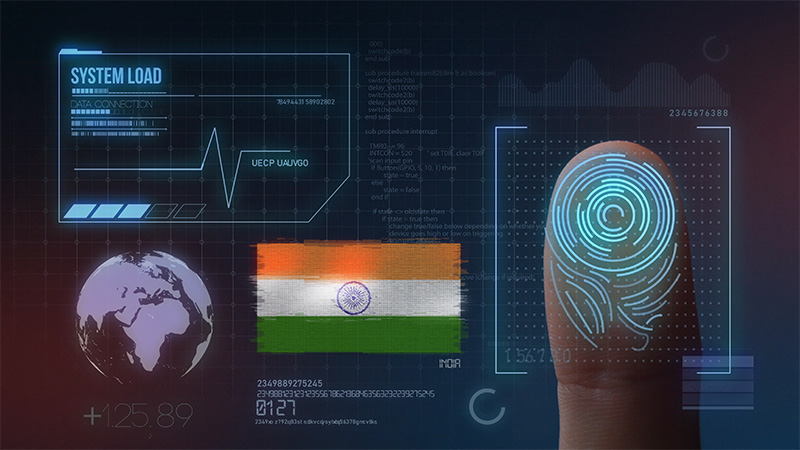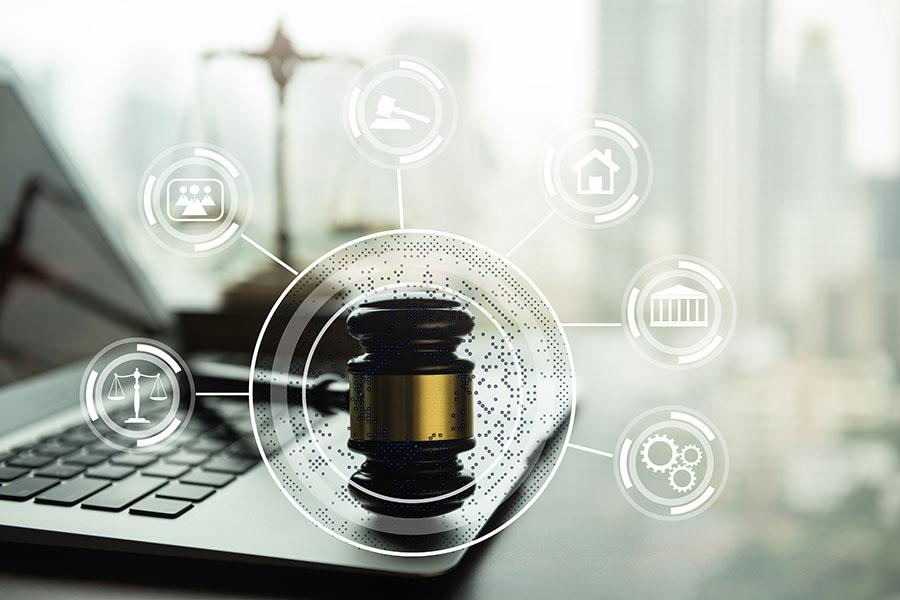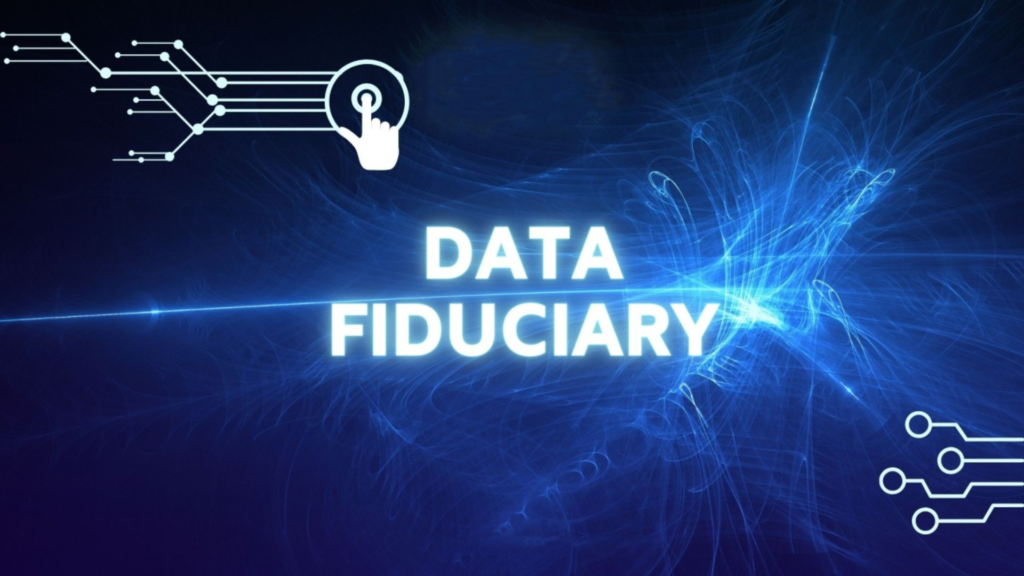
As BA LLB students at SMS Law College, Varanasi, you will learn the intricacies of the legal system. In today’s digital age, a new frontier is emerging – the realm of data privacy.
The information we share online, from social media profiles to financial transactions, forms a vast digital footprint. Protecting this personal data is paramount, and that’s where the Data Protection Act (DPA), also known as the Data Privacy Law, comes into play.
This act establishes a robust legal framework to safeguard individual privacy in India. It outlines the rights of citizens concerning their personal data, such as the right to access, rectification, and even erasure. Businesses, on the other hand, have a responsibility to comply with the DPA’s stringent data compliance regulations. Failure to do so can result in significant penalties.
As BA LLB students, you must understand the nuances of the DPA to ensure their legal compliance. This will help you unlock several exciting career opportunities. As data privacy concerns continue to rise, businesses will increasingly require legal expertise to navigate this complex legal landscape. Mastering the intricacies of the DPA, including its relationship with the Information Technology Act 2000 and the proposed Personal Data Protection Bill, will position you at the forefront of this burgeoning legal field.
This article will equip you with the knowledge and understanding to navigate the DPA’s intricate details and unlock the potential for a thriving legal career in the digital age.
The Evolving Landscape of Data Protection in India

India’s legal framework for data protection has undergone significant transformations in recent years. To fully grasp the current landscape, it’s essential to understand both the limitations of the past and the potential of the future.
The Information Technology Act 2000 (Amendment)
The Information Technology Act 2000 (Amendment) played a crucial role in introducing the concept of data privacy regulations in India. However, it had limitations that the current Data Protection Act (DPA) aims to address. Here are the key points of the Information Technology Act 2000 (Amendment):
- Focus on Cybercrimes: The primary focus of the amendment was on combating cybercrimes like hacking, data theft, and online fraud.
- Limited Safeguards for Personal Data: While the amendment recognized the need to protect data, it offered limited specific safeguards for personal information.
- Introduction of Digital Signatures: A significant contribution of the amendment was the introduction of a legal framework for digital signatures, facilitating secure electronic transactions.
- Amendment to Existing Acts: The amendment modified relevant sections of existing acts like the Indian Penal Code and the Indian Evidence Act to make them applicable to cybercrimes.
Limitations of the Amendment:
- Narrow Scope: The amendment primarily addressed cybercrimes, leaving a gap in comprehensive data privacy protection.
- Limited Control for Individuals: Individuals had limited control over their personal data collected and used by entities.
- Evolving Technology: The rapid advancement of technology necessitated a more robust legal framework for data protection.
The Information Technology Act 2000 (Amendment) served as a stepping stone for India’s data privacy journey. However, recognizing its limitations paved the way for the introduction of the Data Protection Act, which offers a more comprehensive framework for safeguarding personal data in the digital age.
The Personal Data Protection Bill (Yet to Arrive)

Recognizing the limitations of the existing act, the government introduced the Personal Data Protection Bill. This bill aimed to establish a robust legal framework for data protection in India. It outlined clear rights for individuals (data principals) regarding their personal data, such as the right to access, rectification, and erasure.
It also placed well-defined obligations on data handlers (data fiduciaries) concerning data collection, storage, and usage. The bill garnered significant interest and underwent revisions before being presented to the Parliament. However, as of April 2024, the Personal Data Protection Bill has not yet been passed into law.
Why Mastering the Current DPA (or Data Privacy Law) is Crucial?
The introduction of the Personal Data Protection Bill might lead one to believe that the existing data protection framework is obsolete. However, this is not the case. The Data Protection Act (DPA), or Data Privacy Law, remains the primary legislation safeguarding personal data in India until the new bill is enacted.
Here’s why understanding the nuances of the current DPA is crucial:
- Navigating the Existing Landscape: Even with the Personal Data Protection Bill pending, data privacy concerns are prevalent today. Businesses are still subject to data compliance regulations outlined in the DPA. Understanding these regulations allows you to advise clients on data handling practices and ensure they operate within legal boundaries.
- Foundation for the Future: The Personal Data Protection Bill, when enacted, will likely build upon the existing DPA framework. By mastering the current DPA, you’ll gain a strong foundation for understanding the future legal landscape of data protection in India. This will allow you to seamlessly transition to advising clients under the new bill.
In conclusion, while the Personal Data Protection Bill holds promise for a more comprehensive data protection framework, mastering the current DPA equips you with the knowledge and skills to navigate the existing legal landscape and prepare for the future of data privacy law in India.
Key Concepts of the DPA (Data Protection Act)

It’s important to clarify that the Data Protection Act (DPA) in India has not yet been formally enacted.
There was a draft Data Protection Bill introduced in 2018, but as of April 2024 (the timeframe of this conversation), it hasn’t been passed into law.
The legal framework currently governing data privacy in India is the Information Technology Act 2000 (Amendment), although it has limitations compared to a comprehensive Data Protection Act.
That said, understanding the core principles of the Data Protection Act (DPA), also known as the Data Privacy Law, is fundamental for navigating the legal landscape of data privacy in India. This section will demystify key terms and explain the rights and obligations outlined in the act.
Demystifying Key Terms
- Personal Data: This refers to any information that relates to a natural person, which can be directly or indirectly identified. Examples include names, addresses, phone numbers, email addresses, financial data, and even online identifiers like IP addresses.
- Data Principal: This term refers to the individual to whom the personal data belongs. In simpler terms, it’s the person whose data is being collected, processed, or stored.
- Data Fiduciary: This entity determines the purpose and means of processing personal data. It can be a company, organization, or individual entrusted with handling another person’s data.
Understanding Data Principal Rights under the DPA
The DPA empowers data principals with certain control over their personal data. Here are some key rights:
- Right to Access: Individuals have the right to request access to their personal data held by a data fiduciary. This allows them to verify the accuracy of the data and understand how it’s being used.
- Right to Rectification: If the data held by a data fiduciary is inaccurate or incomplete, data principals have the right to request rectification. This ensures the data reflects their true information.
- Right to Erasure (Right to be Forgotten): Under certain circumstances, individuals have the right to request the erasure of their personal data. This allows them to control their digital footprint and potentially have their data removed from certain systems.
These are just a few examples, and the DPA outlines other rights for data principals, such as the right to restrict processing and the right to data portability.
Responsibilities of Data Fiduciaries under the DPA

The DPA also places significant obligations on data fiduciaries. These obligations ensure responsible handling of personal data:
- Data Minimization: Data fiduciaries can only collect personal data that is necessary for a specific, lawful purpose. They cannot collect excessive data beyond what’s required.
- Data Security: Data fiduciaries must implement appropriate technical and organizational measures to protect personal data from unauthorized access, disclosure, alteration, or destruction.
- Transparency and Notice: Data fiduciaries are required to be transparent about their data collection practices and provide clear notice to data principals about how their data will be used.
These are just a few core obligations, and the DPA outlines further responsibilities for data fiduciaries, such as conducting data privacy impact assessments and appointing data protection officers.
By understanding these key concepts, you’ll gain a foundational knowledge of the rights and obligations enshrined in the DPA. This knowledge will be instrumental in advising clients on data privacy compliance and navigating the intricacies of data protection law in India.
Read the next part of the article to understand data compliance for businesses and read the Data Protection Act Case Studies:
Do You Know the Nuances of the Data Protection Act (DPA)? – Part 2




